


Get to know Iceland
Have you ever thought about spending Christmas in Iceland? Would you like to know more about Icelandic Christmas traditions as well as New Year celebrations? Who are the Icelandic Yule Lads, and what are their names? Icelandic holidays hide many secrets, and in this post, we will walk you through this fantastic festive time and answer any questions you might have.
Iceland celebrates 13 days of Christmas instead of just the 12 you may be used to. The period spans from the 24th of December (Aðfangadagur) to the 6th of January (Þrettándinn). Icelanders meet for a special dinner on Christmas Eve, spend time with the family, and exchange their Christmas gifts. According to tradition, dinner starts at 6:00 PM with the tolling of the bells of Reykjavík Cathedral. Make sure that some of the clothes you wear during Christmas dinner are new. Why? According to legend, people who don’t wear new clothes may have problems with Jólakötturinn, the dreaded Yule Cat. It is a mean creature that likes to eat people who haven’t updated their Christmas outfits, especially children.
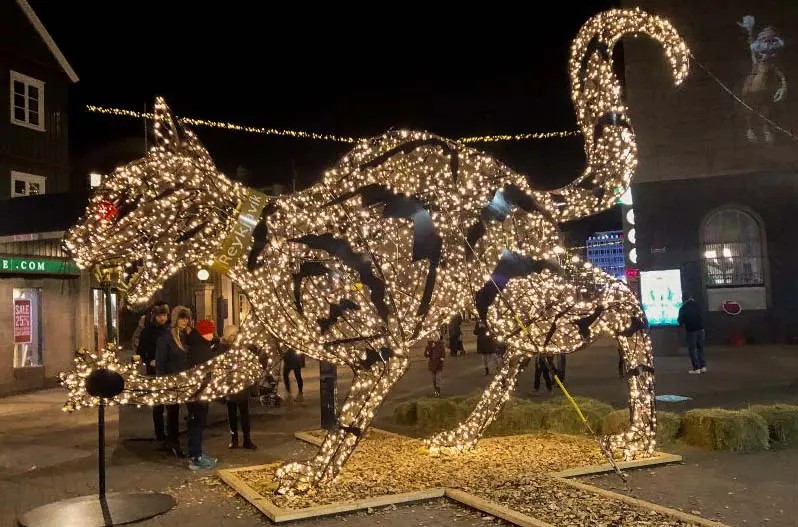
Families spend the next day (Jóladagur) together; they relax and eat traditional Icelandic Christmas food. The most popular one is hangikjöt – a boiled slice of smoked lamb, mutton, or horse meat, usually served with potatoes in béchamel sauce, green peas, and laufabrauð. That last is a thin Icelandic flatbread – laufabrauð mostly eaten at Christmas. Laufabrauð’s appearance is distinctive, with many decorations and different style designs. Of course, you can buy it in any bakery or grocery store.
Finally, the 26th of December (Boxing Day – Annar í jólum) is the last day off from work. On this day, restaurants, swimming pools, and shops are open. Many people decide to spend time outdoors. It’s the perfect time for a nice walk around downtown Reykjavik with a cup of hot chocolate, soaking up the magical atmosphere. Bear in mind, however, that many public places can be closed during this time. You can easily find them on social media and check the opening hours.
During the winter, the days are short, as little as 4-5 hours long. Putting up Christmas lights early can help to shed light up those early evenings. While the tree is usually not erected until just before Christmas, Icelanders start their other decorations in late November when the darkness becomes overwhelming.
One of the characteristic decorations is the advent light. An electric candlestick with the seven “candles” that Icelanders place in their windows starting with the first advent Sunday. You may also easily see Icelandic Yule Lads everywhere. During Christmas, even mjólk (milk) comes in special Christmas packaging.
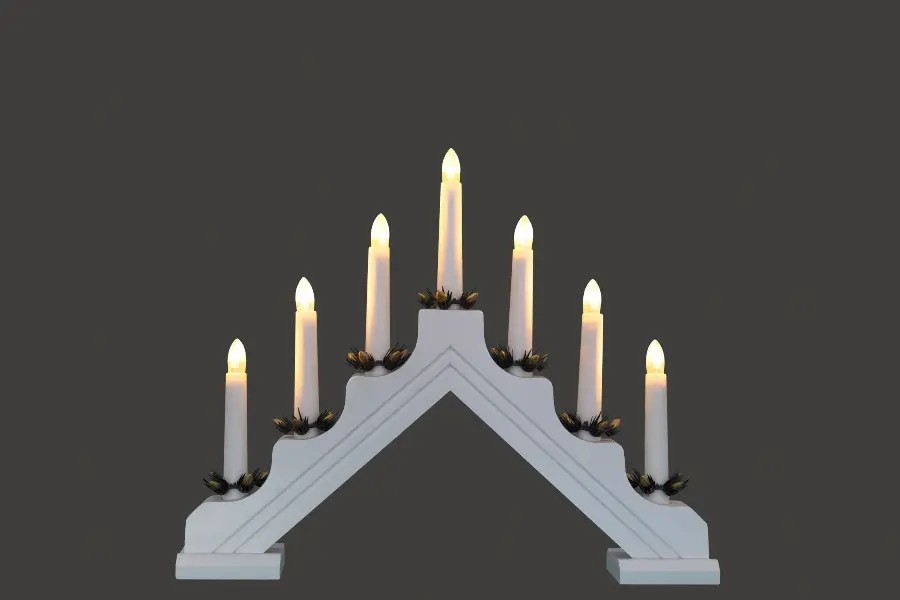
One of the Icelandic traditions is Jolabokaflod – “Christmas Book Flood.” The tradition officially began in 1944 in the wake of the economic crisis following World War II. Since paper was relatively cheap, books became the most popular Christmas gift in the country. The tradition continues in Iceland, with most people getting at least one book as a present on Christmas Eve. Then they often spend the evening reading these books with the family, while eating sweets and drinking hot chocolate. That tradition has become an inspiration for many families around the world.
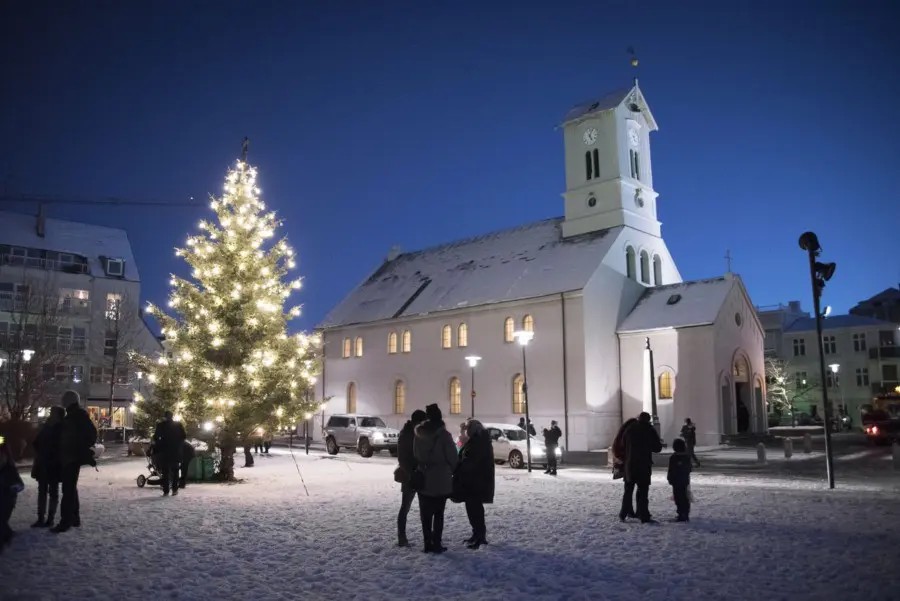
In addition, we have to mention the Christmas tree. Nowadays, it is easy to buy them, for example, at the Heiðmörk – conservation areas near the capital and Christmas tree lots around the city and country. However, in the past, Christmas trees were made of wooden pieces and twigs because Icelanders had no way to get actual Christmas trees. The trees didn’t become native to Iceland until around the middle of the 20th century. People decorated them with colorful paper and painted them green.
The largest Christmas trees and the best known are located in Reykjavik. One of them you may find next to Hallgrímskirkja church. The second one, a gift from the Norwegian government and affectionately called the Oslo tree, is in Austurvöllur Square, in front of the parliament building, Alþingi. This tradition was started in 1951 and signifies the friendship between Iceland and Norway. From 1951 till 2014, the Christmas tree was transported from Norway but has been grown in Iceland since. Now, the Christmas tree is cut from a piece of land near Reykjavik belonging to Norway.
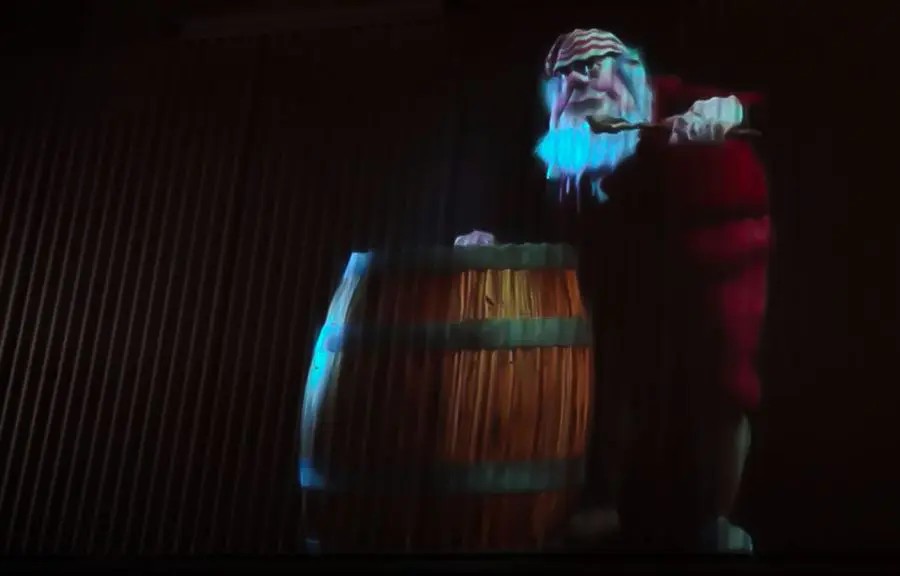
In Reykjavik, you may find many unique decorations. Walking through Reykjavik, you can try to find Icelandic Santas, which are displayed on the walls of the buildings. Apart from Yule Lads, you may see their mother- Gryla, father – Leppalúði, and The Yule Cat, which we mentioned earlier. It is a great idea to look around the main streets of Reykjavik and follow the Yule Lads family.
To impress the locals, you may want to learn how to say Merry Christmas & Happy New Year in Icelandic. The Icelanders say “gleðileg jól og farsælt komandi ár”. If you try, we assure you that you will see a smile on the face of the locals!
When Christmas ends on the 6th of January, all decorations are removed and stored for the next holiday.
Another exciting thing about Icelandic Christmas is the number of Santas, called Jólasveinar or Yule Lads in Iceland. Yes, a plural. Although their number has varied through the ages, it stabilized at 13 in the 20th century. Jólasveinar started to come down from the mountains on the 12th of December.
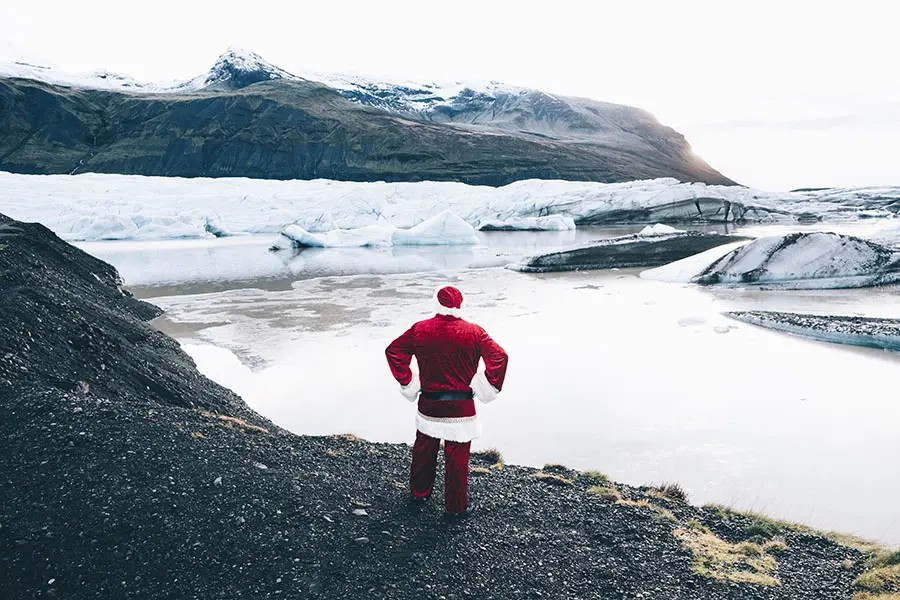
They don’t resemble the typical Santa Claus, the old man with red clothes, which most people remember from childhood. These are trolls who live in the mountains, and their job is to scare misbehaving children.
Their names are particular and descriptive of how they like to harass people. However, if children are good all year, they get a small gift every day for 13 days leading to Christmas! The children leave their shoes in the window and wake up each morning starting December 12th to find a small present left by the Yule lad of the day. However, if the children misbehave, then the Yule lad will only give them a rotten potato. Overall, it pays to be nice!
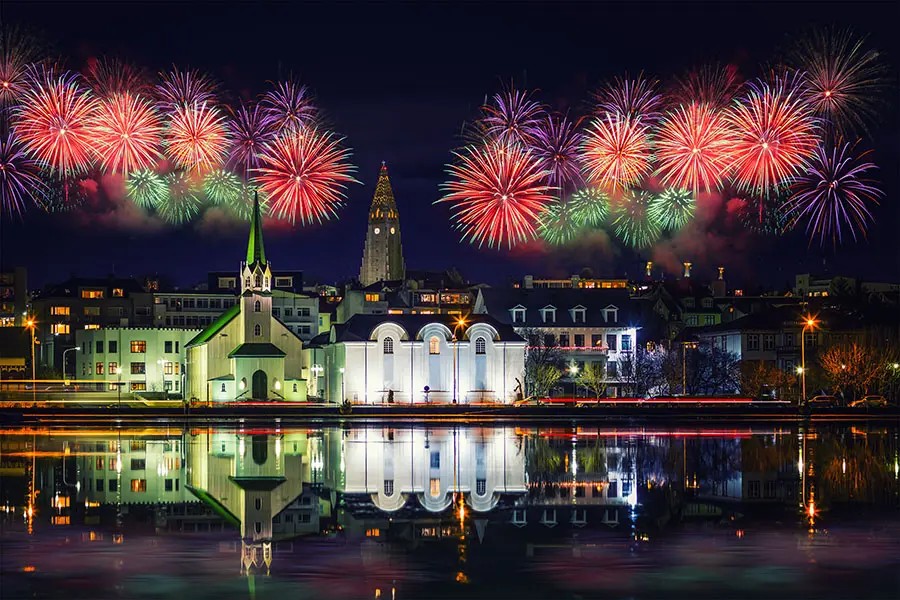
While experiencing Christmas in Iceland can be a good idea for a winter holiday, New Year’s Eve is even better. Icelanders like to celebrate the new year with a bang. At the beginning of celebrations, Icelanders gather together for dinner. Afterward, around 8:30 pm, they meet up at the nearest bonfire (Áramótabrennur). A few days before, you can find an online map indicating where these bonfires are planned. We recommend visiting one of them and experiencing the atmosphere with fire crackling. After the bonfire, people go back home and turn on the TV to watch Áramótaskaupið, a satirical review of the year’s events.
At midnight, you will see an extended fireworks show. Icelanders go all out for fireworks partly because people like to support the Icelandic rescue squads, which rely heavily on fireworks sales. But also because seeing the whole country light up is pretty amazing. In Iceland, you may visit the most impressive fireworks spectacle in your entire life! You can see them everywhere around you. Fireworks are sold only for a short period around New Year’s Eve.
We hope you now know more about this magical time of the year in Iceland. We hope to see you soon in Iceland! Merry Christmas and Happy New Year – Gleðileg jól og farsælt komandi ár!

CampEasy Opening hours 09:00-16:00
Learn more about Self-Service
A minimum of 20 hours notice is required to use the booking engine. Click here to contact us directly for a booking less than 20 hours from now.
Change Date